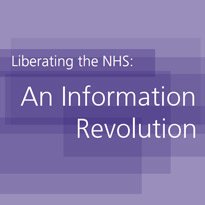Responses to the Information Revolution consultation have registered support for its vision but raised concerns about how far the NHS has to go if it is going to put information at its heart.
Responses collected by eHealth Insider from a wide range of think-tanks, professional and industry bodies, show there is considerable unease about how the proposals will be achieved and outright scepticism about the idea that they will pay for themselves.
The UK Council for Health Informatics Professions says that it is shocked that the revolution is being hailed as “the most important and principal means of transformation for the NHS” when there will be no additional money to either fuel or sustain it.
While the NHS Confederation says that it is clear that significant investment will have to be made otherwise “trade-offs” will be seen.
The NHS Alliance, which represents primary care organisations, also asks who will lead the revolution when both strategic health authorities and primary care trusts are going to be abolished as part of the wider set of NHS reforms.
Many of the responses also note the absence of the National Programme for IT in the NHS in the consultation document and ask for clarification on its future.
Trade body Intellect asks the Department of Health to acknowledge that at present there is a lack of infrastructure to support its vision, and to promote the importance of both information and IT to trust boards.
Some responses are worried that the Department of Health will promise more than it can deliver. While others are concerned that some specific proposals will become a cover for cost-cutting.
For example, director general for informatics, Christine Connelly has indicated that some of the first services to be developed under the information banner could include allowing patients to contact healthcare professionals by email.
But some of the responses argue that while patients should be given a choice over their preferred method of communication, email and video conferencing should not become a substitute for face to face interactions.
Most of the responses support the idea of giving patients greater control of their records. However, some call for definitions of what ‘control’ will look like, how the needs of vulnerable people will be addressed, and how patient confidentiality will be secured.
Most of the responses also praise patient information sites such as NHS Choices and NHS Direct. But many want a quality mark so that the government or another relevant body can verify that information is accurate before it is published.
Overall, the responses suggest that the necessary cultural change needed by both staff and patients for the Information Revolution to work is being seriously underestimated and a clear strategy for how the revolution will take shape needs to be developed.
The consultation closes tomorrow; although some organisations have indicated that they are still preparing their responses and are likely to submit them late.
Read more about the responses in Insight.

